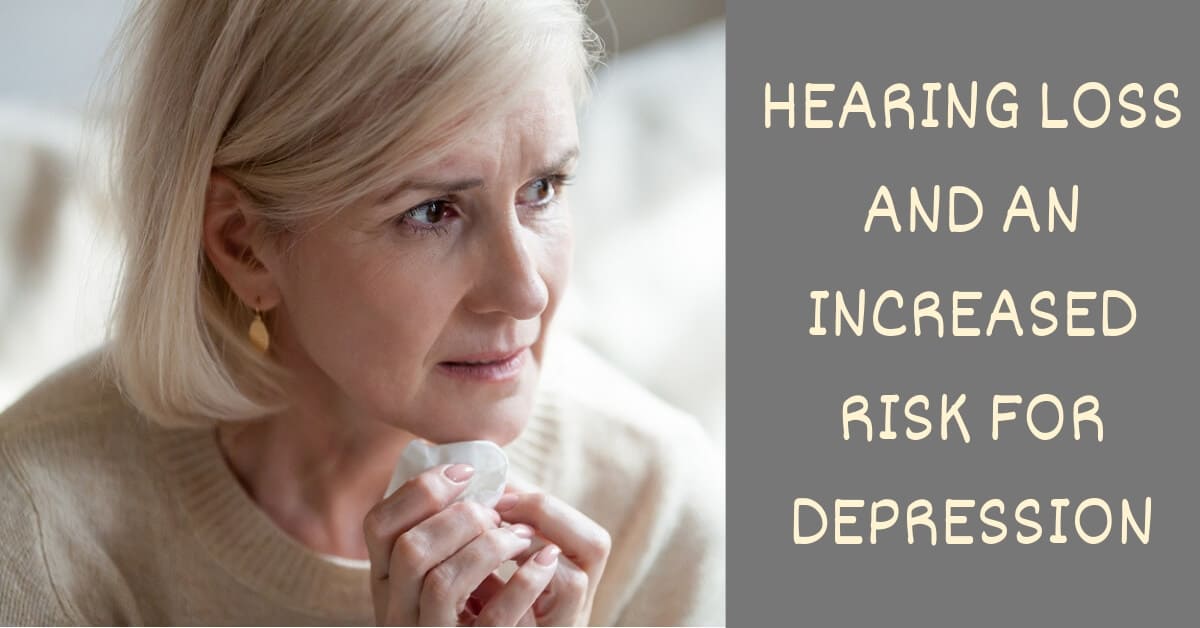
There’s a lot of great things about getting older. Things slow down, and you’ve got time to enjoy some of the things that you might have just let fly by before. You can stop and smell the roses and listen to the birds. At Swift Audiology, we want to be part of making your hearing life better and make sure you hear the birds, your grandchildren and all those other sounds and voices that add to the rich tapestry of life. The first step is getting a hearing evaluation. Thinking you should just “deal” with hearing loss leaves you open to a host of problems, including a higher risk for depression.
Hearing Loss and Depression
Seniors with hearing loss may be more likely than their peers who don’t have hearing difficulties to develop depression, a review of research reveals. According to The Gerontologist, more than 1.3 billion people worldwide live with some form of hearing loss. As the population ages, and longevity increases, that number is expected to rise. About 13% of adults, age 40 to 49, have hearing loss; in the age group 60 to 69 its 45% and it jumps to 90% of adults in the age group of 80 and older, say the authors of the article in The Gerontologist.
For the depression/hearing loss study, researchers reviewed data from 35 studies with a total of 147,148 participants who were 60 years or older. Compared to peers without hearing loss, older adults with some identified form of hearing loss were 47% more likely to have some symptoms of depressions, the study showed.
Blake Lawrence of the Ear Science Institute in Australia, and lead author of the study said, “We know that older adults with hearing loss often withdraw from social occasions, like family events because they have trouble understanding others in noisy situations, which can lead to emotional and social loneliness.” It is possible, he added, that changes which occur during aging, such as hearing loss, may actually be contributing to the development of depression, too.
Study Results Reviewed
The Australia study was reviewed by Dr. Nicholas Reed of the Cochlear Center for Hearing and Public Health at Johns Hopkins University School of Medicine in Baltimore. Reed noted one of the study’s issues was the wide variety of methods used to collect data concerning hearing loss and concerning depression symptoms.
Still, he conceded, it does add to evidence that suggests a link between hearing loss and depression. Reed said hearing loss impairs communication and has an affect on balance and that, in turn, leads to social isolation and a reduction in physical activity. Individuals with hearing loss have difficulty judging where sound is coming from which makes them reluctant to engage in some outdoor activities and they also have difficulty processing conversation in areas with a lot of background noise which reduces social activity.
Tinnitus or ringing and buzzing in the ears can also be caused by hearing loss and that can contribute to depression, Reed said. There are also indications that hearing loss triggers changes in the brain which contributes to depression. With hearing loss, he explained, we send weaker auditory signals to our brain for processing. This means our brain has to work much harder to understand and process sound or speech. The brain rerouting extra power to one area means it is changed in other areas and that would include the areas that regulate depression.
Treatment is Advised
While the study does not come out with a direct conclusion that hearing aids help, scientists are unified in the thought that individuals should seek treatment and get help for hearing loss. Untreated hearing loss has not only been linked to depression by a number of studies, but also to increased risk for high blood pressure, stroke and diabetes; an increased risk for dementia, sleep disorders and a higher mortality rate for people over the age of 70.
Studies also show, including a large study done in the United States, that getting hearing aids improves the overall quality of a person’s life – both mental and physical.
Swift Audiology
Our team of professionals at Swift Audiology is stand ready to help you with getting the correct hearing aids for your needs and lifestyle as well as making sure through follow-up care you are happy with the product. Call today for a hearing evaluation.
